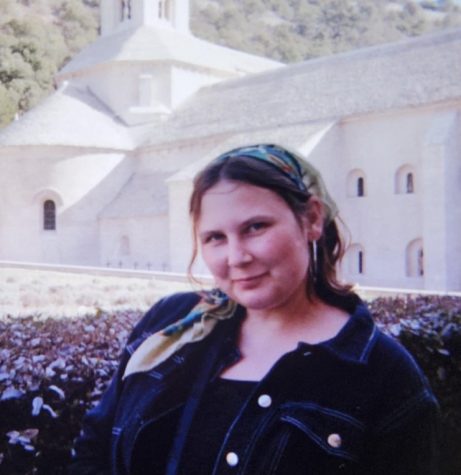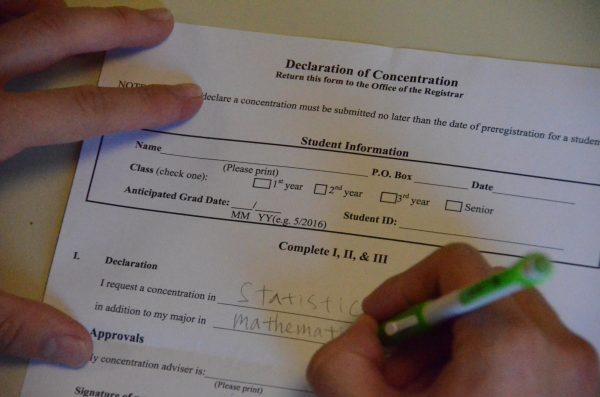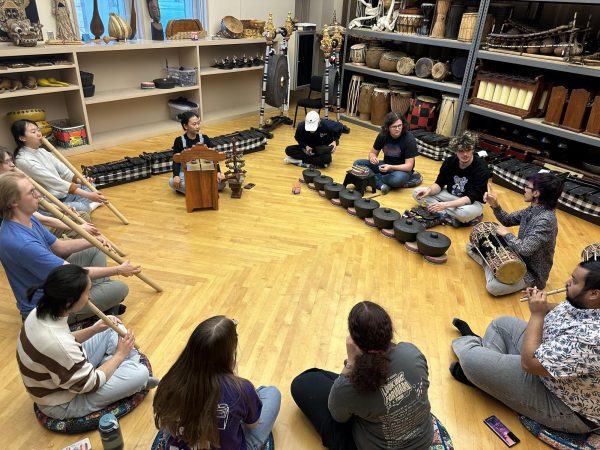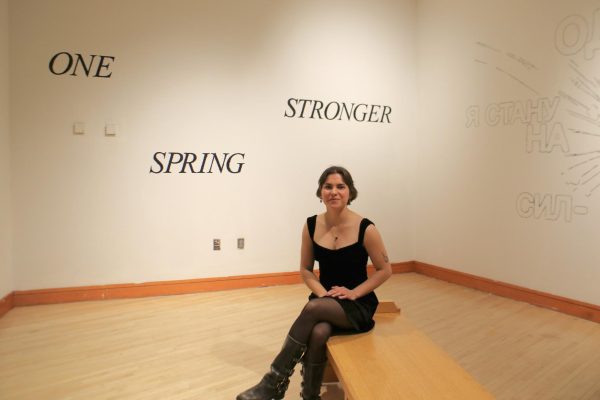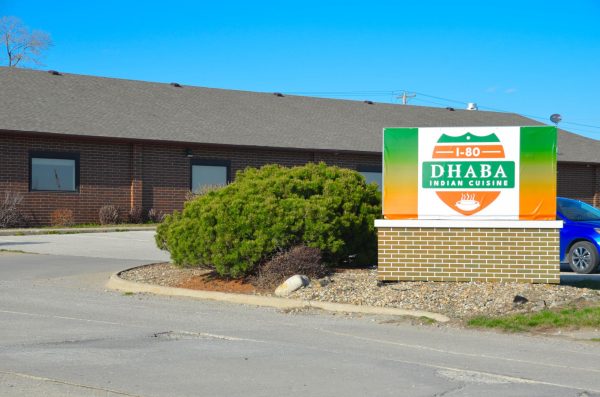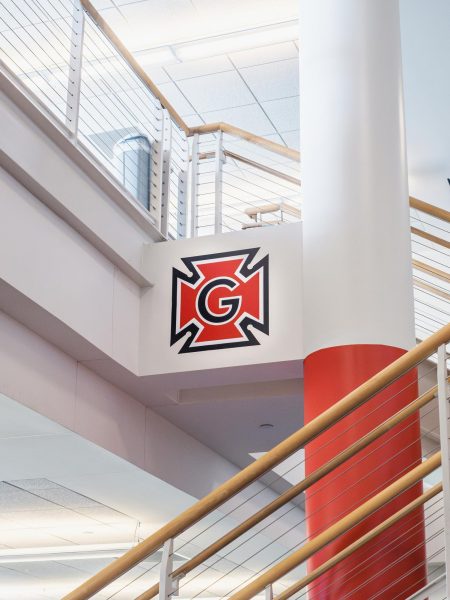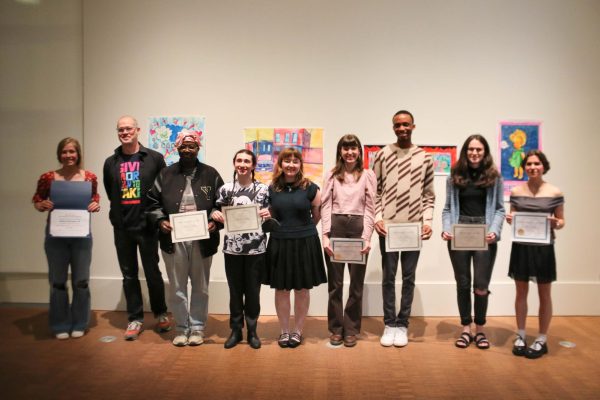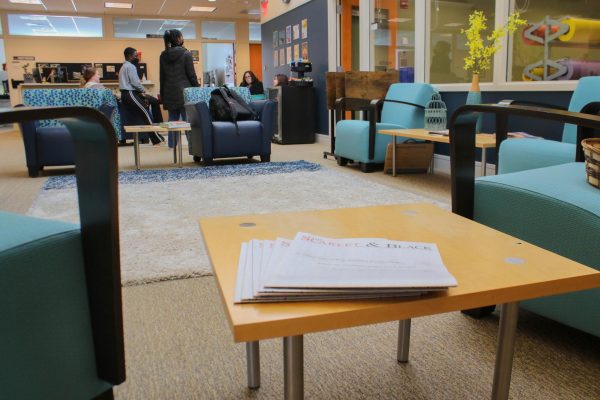UGSDW working group calls for Palestine Solidarity and BDS, faces mixed reactions
A UGSDW working group formed centering Palestinian solidarity and calling on the College to boycott Sabra hummus, which is currently sold in the Spencer Grill.
November 21, 2022
Members of the Union for Grinnell Student Dining Workers (UGSDW) recently introduced a campaign to support Palestine and the Boycott, Divestment, Sanctions (BDS) movement on the Grinnell College campus, which has sparked varied responses among the student body.
The Palestine Solidarity and BDS working group, made up of 12 to 14 union members, formed in late October and hosted an informational meeting on Nov. 4 to share the history of the Palestinian-led movement promoting boycotts, divestments and economic sanctions against the Israeli state.
They also introduced UGSDW’s potential role in the movement by standing alongside Palestinian trade unions, calling on the College to divest from any part of the endowment currently invested in corporations that financially support “Israeli apartheid,” according to Malcolm Galpern-Levin `24, a member of the BDS Palestine Solidarity working group. He said another action point is removing Sabra hummus products sold in the Spencer Grill due to the brand’s connection to the Strauss Group, a group he said supports the Israeli Defense Forces (IDF).
“We’re standing in solidarity with people who are oppressed and actively facing violence on a daily basis,” said Galpern-Levin.
Marisa Goffman `24, a board member of Chaverim, a Jewish student group on campus, said it is hard to know how to approach the union’s BDS campaign when considering the two sides of her identity, both as a Jewish student and as a student worker in the union.
Goffman shared that one of her main concerns with the campaign is the risk of it increasing cases of microaggressions against Jewish students on Grinnell’s campus. According to Goffman, “When BDS comes to campus, Israel and Jewish people become linked in people’s minds. Jewish students are often blamed for a lot of the things that the Israeli government does, even though we don’t always agree with it.”
Ahmad Ayyeh `25 said he has had conversations with students who did not agree with him that the union should support the BDS movement at Grinnell College, including with some of his friends who are members of Chaverim. After hearing their concerns, Ayyeh said it became more important for him that education around the difference between anti-Zionism and antisemitism was incorporated into how UGSDW approached a BDS campaign.
“It’s also as a way for me to advocate for the idea that being pro-Palestinian is not antisemetic, it’s anti-Zionist,” he said. Ayyeh is from Jordan, but his grandparents were displaced from Palestine and he has extended family who still live there today.
Ayyeh, who works in the math lab, said he was not active in the union before the campaign entered the planning stages for the Palestine Solidarity campaign in late October. At the Nov. 4 informational meeting, he spoke about media censorship of pro-Palestinian forces.
Galpern-Levin said he thinks the BDS movement is necessary at Grinnell College, which he noted does not have a Students for Justice in Palestine (SJP) chapter as some other colleges across the country do.
“There’s not really conversations had about what’s happening in Palestine or Israel at all,” he said of the Grinnell College campus.
When asked about the student response to UGSDW’s announcement of a potential BDS campaign, Galpern-Levin said, “One of the loudest things was that the union should not be doing BDS because BDS is antisemitic, which I think is 100% false. BDS is anti-Zionist,” he said. Galpern-Levin, who described himself as Jewish and anti-Zionist, went on to specify that the BDS movement was specifically in opposition to the Israeli government and the oppression of Palestinians.
Ayyeh said he thinks the campaign’s initiative to call on the College to divest from Israeli-linked corporations is important, but he said his main goal in engaging with the campaign is to increase awareness of the conditions in Palestine as well as to encourage open discussion about it on campus.
“There’s a lot of oppression and discrimination that’s happening against Palestinians, and when I try, as a Grinellian, to talk about it, I am being called antisemitic when I am not being antisemitic,” Ayyeh said.
Goffman agreed that Palestine should be a topic discussed more on the Grinnell College campus and in the classroom setting, but she said that a UGSDW campaign might not be the way to start. “I don’t know if coming at it from a political point of view is the way to start that conversation.”
Galpern-Levin said that some students were questioning why UGSDW would consider taking on this campaign now, in the middle of bargaining for a new contract with the College. To this, he said, “it is related to our work as an anti-capitalist, anti-colonialist, anti-imperialist organization.” He also noted that the union can do both, and they have continued to bargain for a contract while organizing a BDS campaign.
According to Goffman, many Jewish students are familiar with the BDS movement, and even within Chaverim, student opinions on a UGSDW campaign differ and are continuing to develop.
Goffman said she was surprised when UGSDW reached out to Palestinian student workers when they began planning the BDS campaign but did not contact her or other members of Chaverim. Goffman has since spoken with members of the working group and said she would like to collaborate with the union to provide her perspective to the campaign as an anti-Zionist Jewish student.
“Chaverim is an open space for discussion, for debate, for support,” Goffman said, “and I think it’s just important for me and for the rest of the board to let students and Jewish students know that that’s what we’re here for. We support all Jewish students, no matter how you identify or what your opinions are.”
Ayyeh said that he also hopes to see more open discussion of Palestinian oppression on campus, and he does not want a BDS campaign taken up by UGSDW to negatively affect the student body. “We’re doing this for a good cause and we want it to stay a good cause,” said Ayyeh.
The next step for UGSDW would be to adopt a resolution voted on by members which would outline how an actual BDS campaign would function on the Grinnell College campus. If passed, any future actions by the union would have to reflect the intentions set by the resolution.
Resolutions that have been passed by UGSDW members in the past include fighting for a higher minimum wage as well as robust job security, both of which have come up in recent contract bargaining.
According to Galpern-Levin, the Palestine Solidarity and BDS working group does not have a specific timeline in mind for when they will present a resolution to union membership, and raising awareness among students is the group’s current priority. So far, this has taken the form of one-on-one meetings and a one-page informational pamphlet shared to students on campus late last week which provides a historical snapshot of the BDS movement as well as an explanation of the difference between antisemitism and anti-Zionism.
As student workers, all staff members of the S&B will be included in future collective bargaining. The S&B remains an independent newspaper and is committed to maintaining its integrity in reporting.





























































